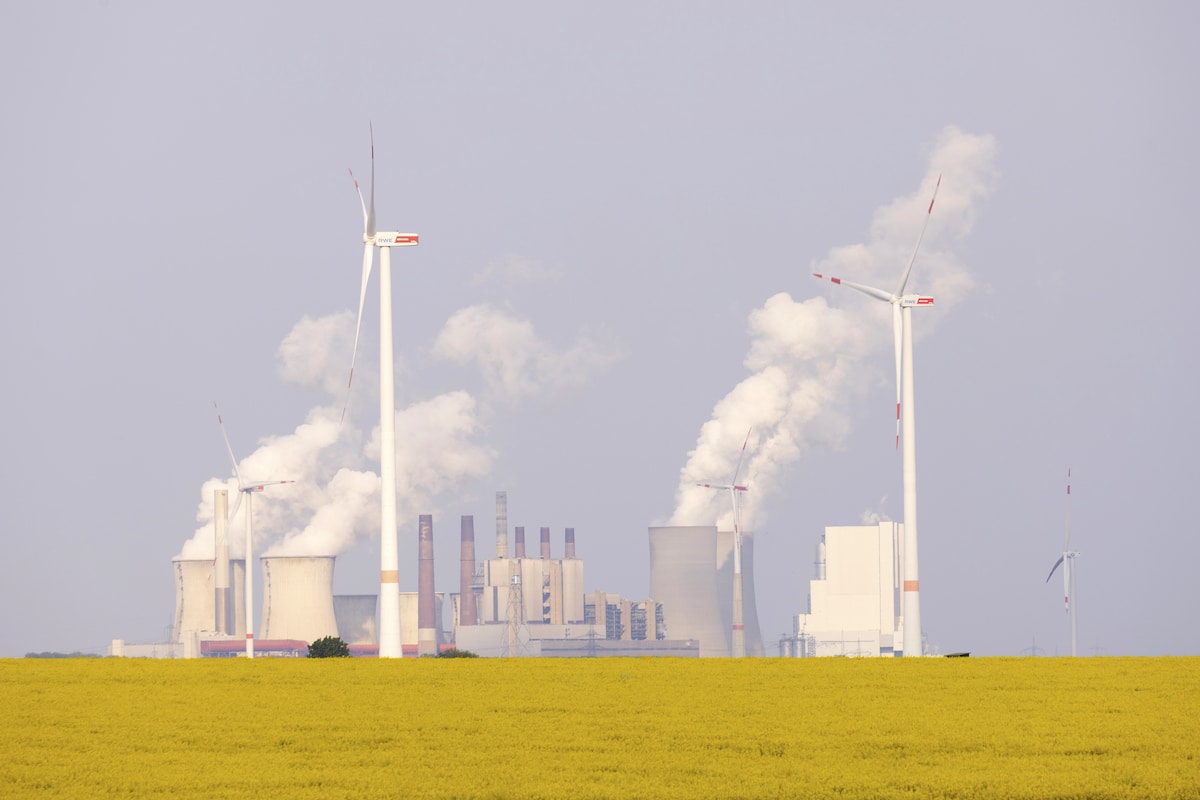Products You May Like
A coal-fired power plant and wind turbines at the Neurath power station near Bedburg, Germany on May 5, 2022. Andreas Rentz / Getty Images
 Why you can trust us
Why you can trust us
Founded in 2005 as an Ohio-based environmental newspaper, EcoWatch is a digital platform dedicated to publishing quality, science-based content on environmental issues, causes, and solutions.
Germany is in the midst of a debate about when it will stop using coal. While the current coalition government under Social Democrat Chancellor Olaf Scholz wants to phase out the highly polluting fossil fuel by 2030, states in the country’s east want to maintain an earlier, less ambitious target of 2038.
Now, a report from the Federal Network Agency finds that Germany can meet both the 2030 deadline and its energy needs.
“The report by the Federal Network Agency approved by the cabinet today shows that electricity demand can be reliably met at any time between 2025 and 2031,” Economy Minister Robert Habeck, who is a member of the Green party, said in a press release Wednesday. “This also applies if electricity consumption increases significantly due to new consumers such as electric vehicles and heat pumps and the phase-out of coal takes place by 2030.”
More From EcoWatch
In the immediate aftermath of Russia’s invasion of Ukraine and the subsequent surge in energy prices, Germany brought some retired coal plants back online, as AFP and The Local reported. It also allowed energy company RWE to expand a lignite coal mine into the village of Lützerath despite protests.
At the same time, Habeck insisted that the return to coal was only a stop-gap measure, according to The Local and AFP. The cabinet approved a draft law in November to phase out coal power in the state of North Rhine-Westphalia by 2030, and RWE has also agreed to abandon coal by that date, according to Reuters. The fate of coal in Germany’s eastern states is a little more ambiguous. The country’s Coal Exit Law established a phase out date of 2038, and coal mining regions in the east have expressed a desire to stick to it, according to Clean Energy Wire. However, the national government has agreed to “ideally” achieve a 2030 coal exit for the whole country, according to Reuters.
The new report, which is the most recent of the supply security monitoring reports used by the government to inform energy policy, lends support to the earlier timeline, according to Clean Energy Wire. Still, maintaining energy security while speeding the coal exit requires the country to meet targets for renewable energy and hydrogen production infrastructure.
Germany has a goal of generating 80 percent of its electricity from wind and solar by 2030, according to The Local and AFP, and the government is working to ease restrictions for new wind turbines. Habeck further said in the press release that the government was launching a “power plant strategy” during the first half of 2023 to build new plants and ensure they are all “hydrogen ready.”
“We will be able to guarantee supply security during the transformation of our electricity system to 100 percent renewable power,” he said, as Clean Energy Wire reported.
Subscribe to get exclusive updates in our daily newsletter!
By signing up, you agree to the Terms of Use and Privacy Policy & to receive electronic communications from EcoWatch Media Group, which may include marketing promotions, advertisements and sponsored content.
